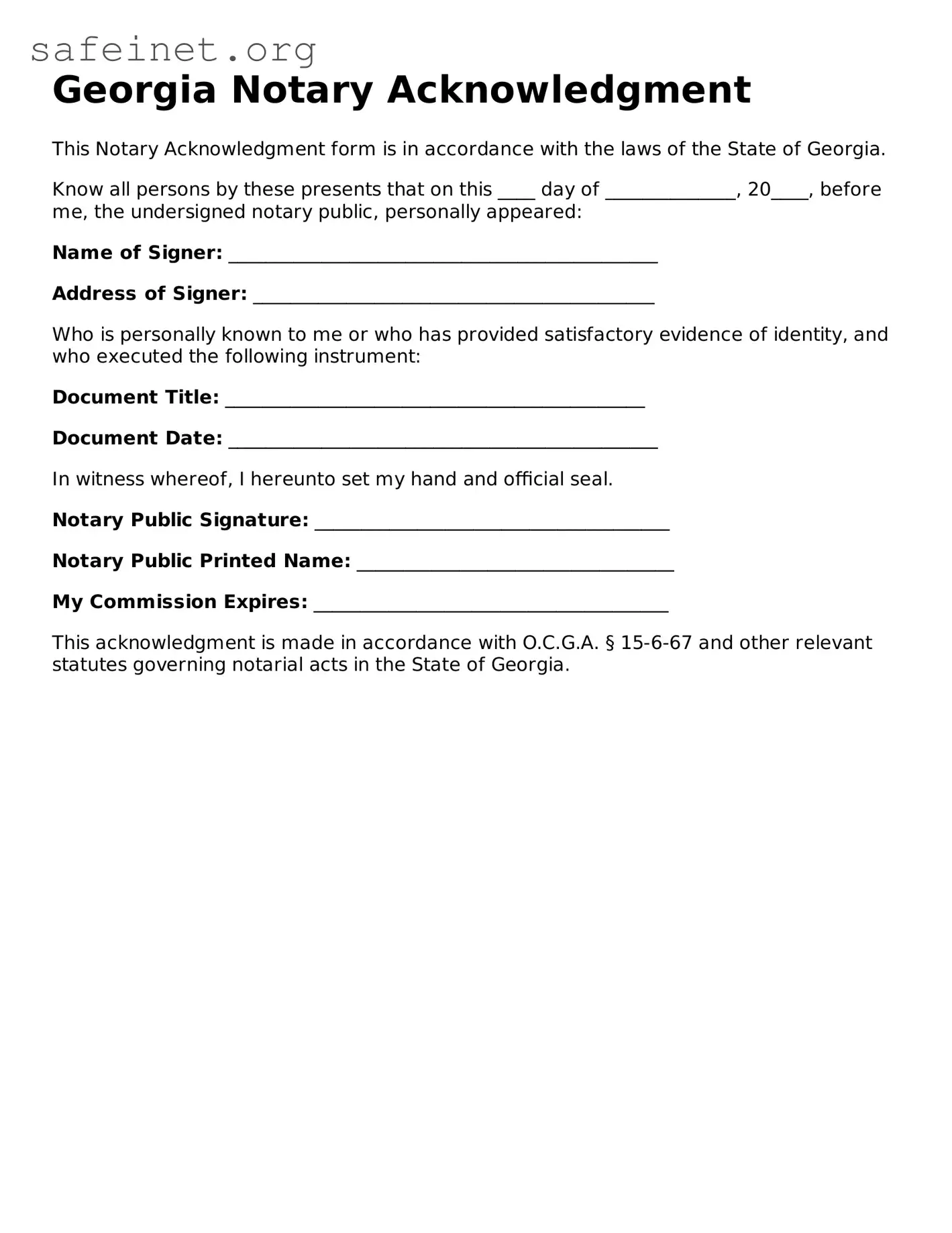What is a Georgia Notary Acknowledgement form?
A Georgia Notary Acknowledgement form is a legal document that certifies the identity of a person who has signed a document. This form is necessary to verify that the signatory appeared before a notary public and affirmed their signature on the document willingly and with an understanding of its contents. The form typically includes details about the signor, the date of acknowledgment, and the notary’s signature and seal.
When is a Notary Acknowledgement form required?
This form is often required when executing documents such as deeds, mortgages, and affidavits. It serves to provide assurance that the individual signing the document is indeed who they claim to be, preventing potential fraud. Many legal documents necessitate notarization to ensure compliance with state laws and to enhance their validity.
How does one complete a Georgia Notary Acknowledgement form?
To complete this form, the individual signatory must first provide their identification to the notary. After confirming the identity, the notary will complete the acknowledgement section by filling in the details such as the date, the name of the signatory, and affix their signature and seal. It is crucial that the signatory is present during this process. The form should remain unsigned until the notary is present.
What information is typically included on the form?
A typical Georgia Notary Acknowledgement form includes the name and address of the signatory, the title of the document being acknowledged, the date of signing, and the notary's information, which includes their official signature and seal. This information ensures that all parties involved can verify the authenticity of the signature.
Is there a fee associated with obtaining a Notary Acknowledgement?
Yes, there is generally a fee for the services provided by a notary public. The fees vary depending on the notary's discretion and the state’s regulations. In Georgia, the maximum fee a notary can charge for performing an acknowledgment is $2.00 per signature. It is advisable to confirm any fees prior to service.
Can a Notary Acknowledgement form be used for any document?
No, while a Notary Acknowledgement can be applicable to many documents, not all documents require this form. Commonly used documents include property transactions, court documents, and powers of attorney. It is important to evaluate the specific legal requirements regarding the document in question to determine if notarization is necessary.
What should I do if I have further questions about the Notary Acknowledgement form?
If further questions arise regarding the Notary Acknowledgement form or its application, it is advisable to consult a legal professional or the local notary office. They can provide specific guidance based on individual circumstances, ensuring proper compliance with all relevant legal requirements.
